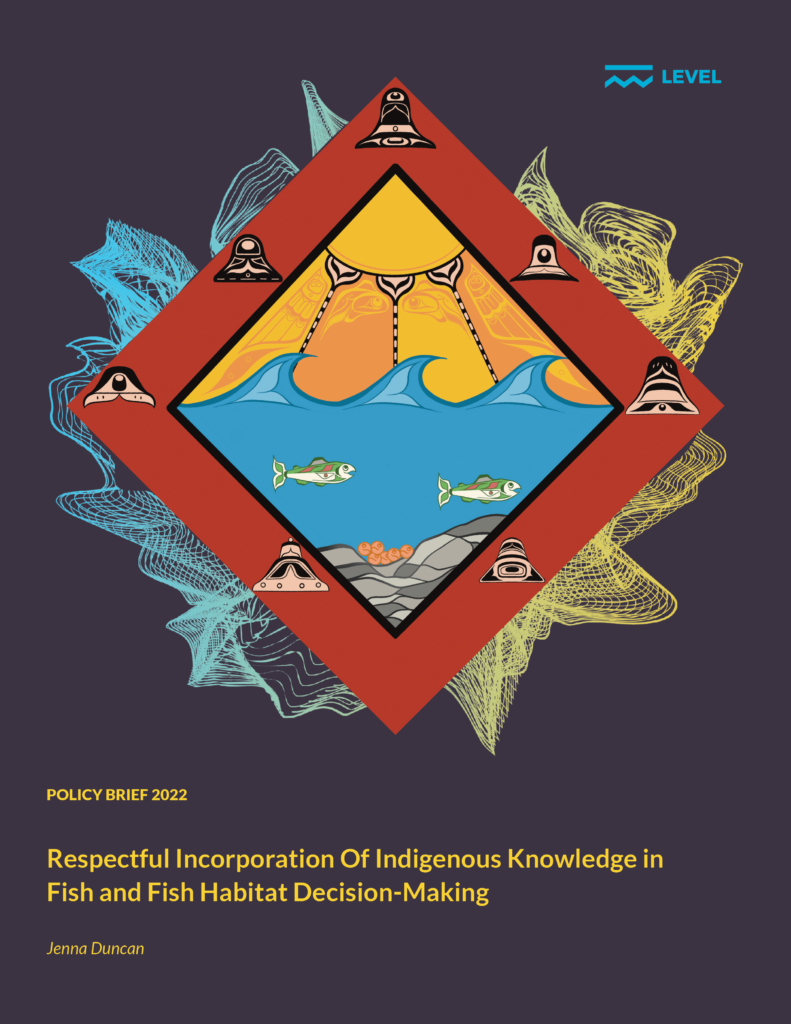This would be detrimental to ecological systems and communities alike, due to wild Pacific salmon being both an ecological and cultural keystone species (Reid, et al., 2022). Indigenous fish and resource management differs greatly from the colonial fishing practices and management that exist today. Colonial systems focus mainly on the extraction of resources for short-term benefits, whereas Indigenous peoples focus on managing resources in a way that ensures there is enough for multiple generations (Atlas, et. al. 2021). It is extremely important to include both Indigenous knowledge and Western science in the protection of salmon, fish, and fish habitat. Each perspective has great strengths, with no one knowledge system being able to tell us everything we need to know about the species to ensure its revival and survival for future generations.
In 2019, Canada introduced the modernized Fisheries Act and Bill C-68, which states that “provided Indigenous knowledge must inform habitat decisions,” and that Indigenous knowledge will be protected when provided in-confidence to the Minister (Government of Canada, 2021). The Fish and Fish Habitat Protection Program (FFHPP) was created to implement the Fisheries Act provisions from Bill C-68. Indigenous knowledge is sacred to Indigenous communities and it is of the utmost importance that there is a respectful relationship during this process, and that communities are meaningfully involved in all stages of the collection, storage, and usage of this information. Indigenous people need to be part of the decision-making process to ensure Indigneous knowledge is appropriately analyzed and interpreted (FNFC, 2019).
In order to conserve wild Pacific salmon and other important fish species, I recommend starting with a process or policy within the FFHPP that is already working to ensure the provided Indigenous knowledge is included in decision-making. The FFHPP should develop regional, First Nation-led advisory panels to gather, hold, and inform how Indigenous knowledge should be interpreted and applied during fish and fish habitat decision-making. There are over 600 Indigenous groups in Canada with over 200 of those residing in British Columbia (BC), and all of those groups/communities have their own Indigneous knowledge practices and protocols. This makes it important to have regional groups to interpret and advise on how to include Indigenous knowledge. For any decision-making of broad concern, there could be a national advisory panel that elicits advice from the various regional panels.


